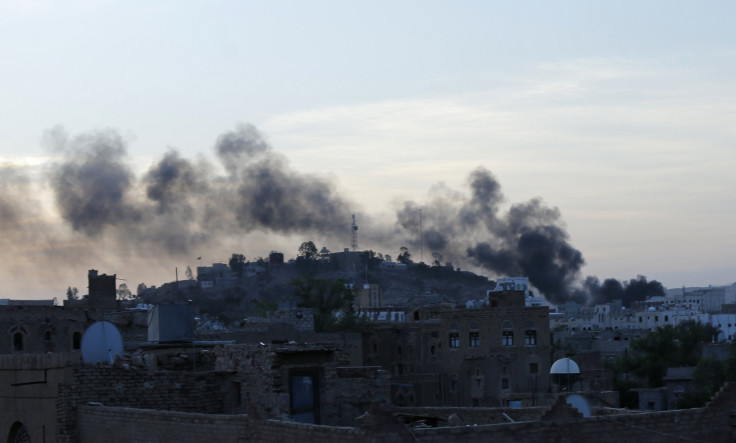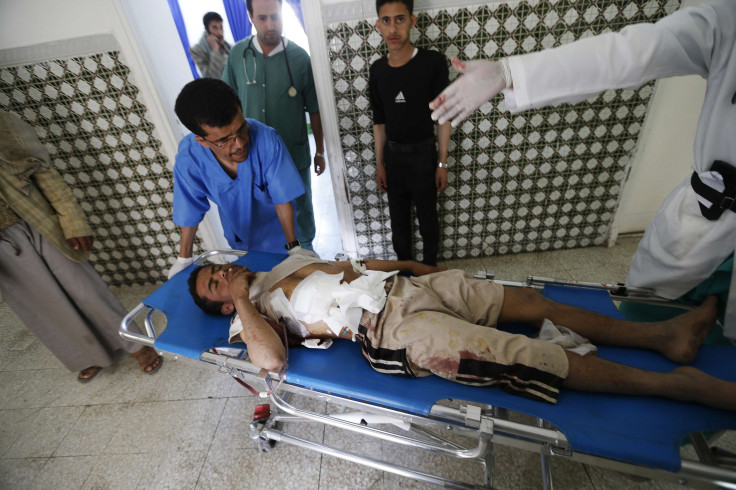Yemeni Government And Houthi Rebels Reach Agreement, U.N. Envoy Says

SANAA (Reuters) -- The Yemeni government and armed Shiite Houthi rebels reached an agreement on Saturday to end the worst violence for years in the capital Sanaa, U.N. special envoy Jamal Benomar said.
The fighting, which intensified on Thursday after weeks of protests and clashes, appeared to be the biggest challenge yet to a U.N.-backed transition to democracy launched after veteran ruler Ali Abdullah Saleh was forced to step down in 2012.
Fighting raged on Saturday on the outskirts of Sanaa, and rebels said they had taken control of the headquarters of state television. Yemen's Higher Security Committee announced a curfew in four areas of the capital from 9 p.m. until 6 a.m., and schools were shut until further notice.

"This agreement shall be a national document that will advance the path of peaceful change, and will lay the foundations for national partnership and for security and stability," Benomar said in a statement, adding that preparations were being made for the signing.
Benomar had held talks with Houthi leader Abdulmalek al-Houthi in their home province of Saada on Wednesday and Thursday.
One Houthi rebel leader, Abdelmalik al-Ajri, told Reuters his group's representatives could reach the capital from Saada by Sunday to sign a deal to end the crisis.
President Abd Rabbu Mansour Hadi had earlier publicly backed Benomar's efforts.
Insecurity and political turmoil have grown since Saleh was ousted by Arab Spring protests. The Houthi insurrection is one of several threats to the stability of Yemen, which borders oil exporter Saudi Arabia and is struggling with a secessionist movement in the south and a spreading al Qaeda insurgency.
The Houthis, who belong to the Zaydi sect of Shiite Islam, have been struggling for a decade against the Sunni-dominated government for more territory and autonomy in the north.
STATE TV STORMED
Houthi forces have been fighting on the outskirts of Sanaa since Thursday against the army and tribesmen allied with the powerful Sunni Muslim al-Ahmar clan, whose members hold senior positions in the army and the government.
The headquarters of state television, near to other state institutions, caught fire on Saturday after three days of mortar attacks.
The head of Yemeni television, Hussain Basleem, told Reuters the building had been surrounded by Houthi rebels, after which broadcasts were cut and TV employees told Reuters rebels had stormed the building. Houthi member Ali al-Emad said his group controlled the military checkpoints guarding the station.
Yemen TV later came back on air, saying it was airing from an alternative location.
Clashes also erupted around the religious Iman University, near an army base.
Residents and relatives of victims reported at least 16 deaths between Friday night and Saturday morning. Ten members of one family were killed when their minibus was hit by mortar fire as they fled their home in the Shamlan district of northern Sanaa.
Medical sources said 13 Houthis had died on Saturday in fighting with the army in the capital.
Officials were not available to confirm the death tolls.
The Ministry of Education announced it would close schools from Sunday for the safety of students and teachers, the state news agency Saba reported.
The University of Sanaa, Yemen's biggest, was shut on Saturday after a mortar landed inside its grounds.
In recent weeks, Houthi protesters have blocked the main road to Sanaa's airport and held sit-ins at ministries. They have called for the government to step down, and for the restoration of subsidies cut by the state in July as part of economic reforms.
© Copyright Thomson Reuters 2024. All rights reserved.





















